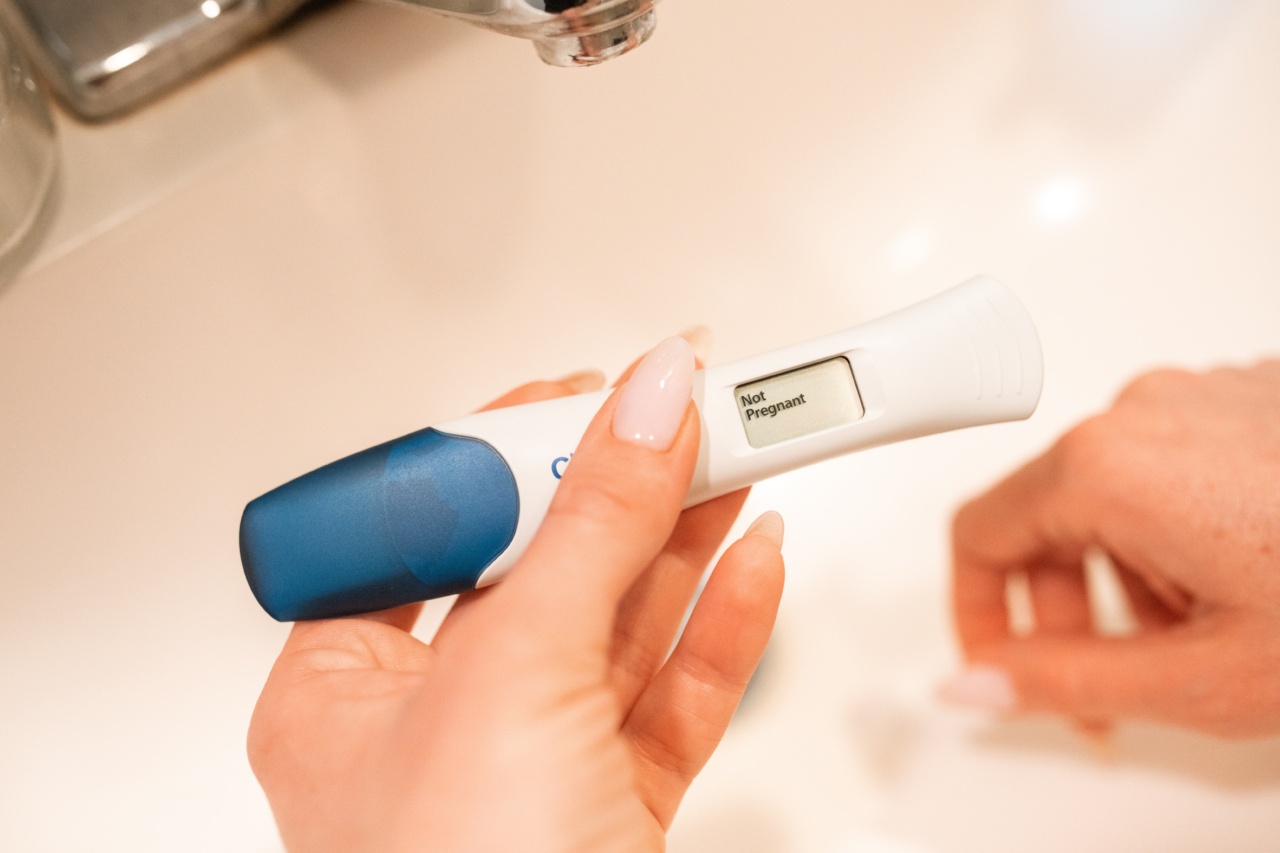Pregnancy is a beautiful and transformative time in a woman’s life. However, it can also bring about certain health challenges, one of which is blood pressure.
High blood pressure or hypertension during pregnancy can pose risks to both the mother and the baby. In this article, we will explore the risks associated with blood pressure during pregnancy and what solutions are available to manage it.
Risks of High Blood Pressure During Pregnancy
High blood pressure during pregnancy can lead to several complications that can affect the well-being of both the mother and the baby. Some of the risks associated with high blood pressure during pregnancy include:.
1. Pre-eclampsia
Pre-eclampsia is a serious condition characterized by high blood pressure and damage to organs, usually the liver and kidneys. It can restrict blood flow to the placenta, affecting the baby’s growth and development.
2. Premature Birth
High blood pressure can increase the risk of premature birth, which can result in various health issues for the baby. Premature babies may have underdeveloped organs and require special medical care.
3. Low Birth Weight
Babies born to mothers with high blood pressure are at a higher risk of having a low birth weight. Low birth weight can lead to developmental delays, difficulties in breastfeeding, and an increased risk of chronic diseases later in life.
4. Placental Abruption
Placental abruption occurs when the placenta separates from the uterine wall before delivery. It can cause heavy bleeding and may require immediate medical attention. High blood pressure increases the risk of placental abruption.
5. Gestational Diabetes
High blood pressure during pregnancy is also associated with an increased risk of developing gestational diabetes, a form of diabetes that affects pregnant women. Gestational diabetes can lead to complications during pregnancy and delivery.
Managing High Blood Pressure During Pregnancy
Proper management of high blood pressure during pregnancy is crucial to minimize the risks mentioned above. Here are some solutions and strategies that can help:.
1. Regular Prenatal Check-ups
Attending regular prenatal check-ups is essential to monitor blood pressure levels. Your healthcare provider will monitor your blood pressure throughout the pregnancy and take necessary actions if it becomes too high.
2. Healthy Diet
Following a healthy and balanced diet can help manage blood pressure during pregnancy. Avoiding excessive salt, processed foods, and foods high in saturated fats is recommended.
Instead, focus on consuming fresh fruits, vegetables, whole grains, and lean proteins.
3. Regular Exercise
Engaging in regular physical activity, as approved by your healthcare provider, can help regulate blood pressure levels. Gentle exercises such as walking, swimming, and prenatal yoga can be beneficial.
4. Medication
In some cases, medication may be prescribed by your healthcare provider to control high blood pressure during pregnancy. It is essential to follow the prescribed dosage and seek regular medical supervision.
5. Stress Management
Stress can contribute to high blood pressure. Engaging in relaxation techniques, such as deep breathing exercises, meditation, and prenatal massages, can help manage stress levels and maintain healthy blood pressure.
6. Adequate Rest
Getting enough rest and sleep is important during pregnancy, especially if you have high blood pressure. Make sure to prioritize rest and create a comfortable sleep environment.
7. Monitoring Weight Gain
Keeping track of weight gain and maintaining a healthy weight can help manage blood pressure levels. Consult your healthcare provider for appropriate weight gain guidelines during pregnancy.
8. Avoiding Smoking and Alcohol
Smoking and alcohol consumption should be avoided during pregnancy as they can elevate blood pressure levels and pose additional risks to both the mother and the baby.
9. Support Network
Having a strong support network can help manage stress and provide emotional support throughout the pregnancy. Seek support from your partner, family, friends, or join pregnancy support groups.
10. Knowledge and Awareness
Educate yourself about the symptoms and warning signs of high blood pressure during pregnancy. Being aware of the potential risks and early intervention can help prevent complications.






























